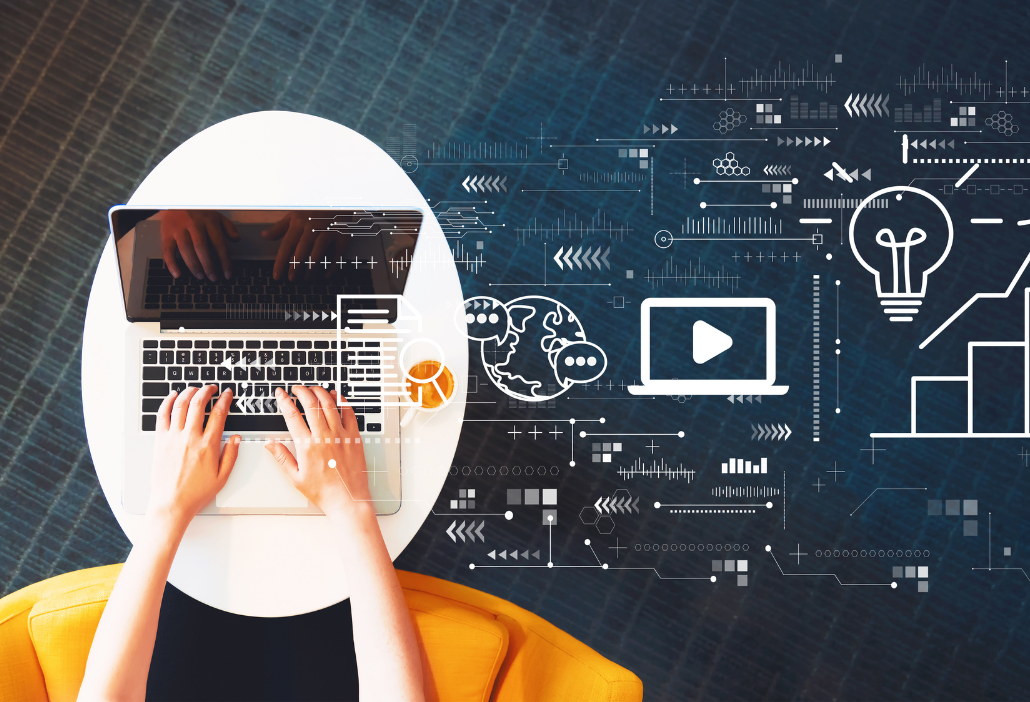
Human creativity meets machine precision
By embracing a new fusion of AI time-saving tools and human finesse, marketers can look to the future feeling secure and confident, says Laura Lane of HubSpot In the world of marketing, AI still sparks a mix of excitement and raised eyebrows. As someone deeply rooted...
By embracing a new fusion of AI time-saving tools and human finesse, marketers can look to the future feeling secure and confident, says Laura Lane of HubSpot
In the world of marketing, AI still sparks a mix of excitement and raised eyebrows. As someone deeply rooted in this conversation at HubSpot, I’ve seen the full spectrum of industry reactions to AI – from wide-eyed optimism to cautious scepticism. Yet, the narrative is shifting: AI is not to be feared, it is to be embraced and used to help us be more creative, enhancing precision and innovation.
With 69% of marketers in the UK already concerned that AI will create biased or plagiarised content, some marketers are understandably concerned about AI killing off creativity and authenticity. But are their concerns misplaced? Can AI comprehend what it means to be us? Can it reflect our brand’s heart and soul? With a third of marketers having concerns here, it’s clear AI has a few doubts to quell.
However, the reality is starkly different. It’s been easy for people to err on the side of caution when it comes to AI, but the potential of AI to free us up from the grind, saving three to five hours on each piece of content and getting to know our audiences on a level that feels like reading minds. And that’s just scratching the surface of how AI can help marketers.
Working smarter, not harder
So, how do we work with AI without stepping on our brand’s toes? Clear objectives, a touch of human finesse, and continuous learning paired with the right measurements in place to ensure successful AI implementation. This should always be built upon a foundation of a brand’s ethics to ensure it never strays away from who it represents, respecting privacy and avoiding bias.
For today’s modern brand, AI is not an option, but a necessity. It’s all about doing more with less – predicting customer behaviours with startling accuracy, automating the mundane, and crafting personalised content that strikes a chord with audiences. AI’s capability to process and analyse data quickly translates into valuable insights, empowering marketers to craft campaigns that genuinely resonate with their audience.
AI’s role in marketing is diverse and transformative. It’s redefining customer engagement with chatbots that mimic human conversation, automated emails that hit just the right note, and content that adapts in real-time to the viewer’s interests. Beyond just understanding customer desires, AI is making every marketing move more informed, more strategic, and more effective. As AI evolves, it’s clear: the future of digital marketing is not just about reaching audiences but resonating with them on a whole new level.

For marketers, AI offers a multifaceted toolkit that can significantly enhance day-to-day operations. For example, personalisation facilitated by AI helps marketers tailor content and recommendations based on individual preferences and behaviour patterns, thereby fostering stronger connections with target audiences. We then have AI-powered brainstorming tools that can aid marketers in generating innovative ideas and refining strategies by analysing vast datasets and identifying emerging trends. When it comes to visual content, AI-driven video editing and creation platforms streamline the production process, enabling marketers to craft compelling and engaging videos with ease – potentially saving time and money. Furthermore, AI-driven time-saving tools, such as content assistants, automate mundane tasks like scheduling posts and analysing metrics, freeing up valuable time for strategic planning and creative endeavours.
This might sound like something just being spoken about for the future but a lot of businesses are already on the AI-wagon. There are a host of examples such as Virgin Voyages’ Jen AI campaign, which leveraged an AI version of Jennifer Lopez and achieved an engagement rate 150% higher than traditional campaigns. Or Coca-Cola’s “Create Real Magic” initiative, which demonstrated how AI can democratise content creation, allowing consumers to co-create and strengthen their connection with brands.
Carvana crafted 1.3 million unique AI-generated “joyride” videos, tailored to the specifics of car model, colour, and even cultural context, all processed at a staggering rate of 300,000 videos an hour. Spotify’s venture into AI-driven voice translation for podcasts breaks language barriers, offering a personalised listening experience without losing the podcaster’s original voice. The list goes on.
Looking ahead to amplifying creativity and connections
AI can’t emulate human creativity and connection as it doesn’t come with the rich lived experiences and opinions that we have. AI would be useless without human knowledge, strategy, and implementation. So, when it comes to mundane tasks that take up way too many of our hours – let’s leave it to the robots.
Embarking on the journey of AI integration can be an invigorating experience. It’s an opportunity to experiment and learn, discovering first-hand how AI can not only streamline and automate routine tasks but rejuvenate marketing campaigns and strategies.
Let’s embrace AI with curiosity, creativity and with the excitement of explorers on the brink of a new frontier. Because, in the end, that’s what we are – explorers, storytellers, connectors. And with AI, we have a new set of tools to paint our stories in brighter, bolder colours than ever before.
About the author

Laura Lane is Head of Marketing at HubSpot.
